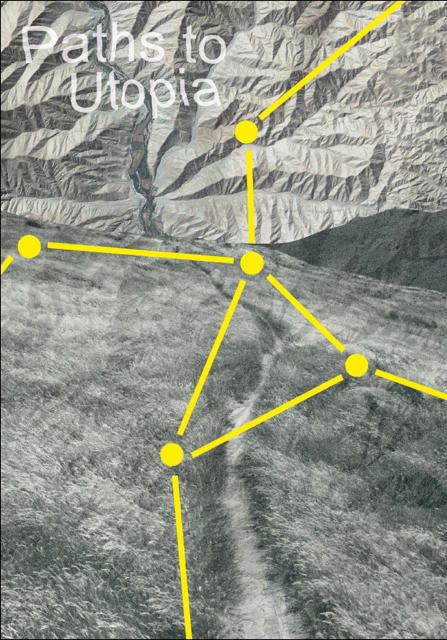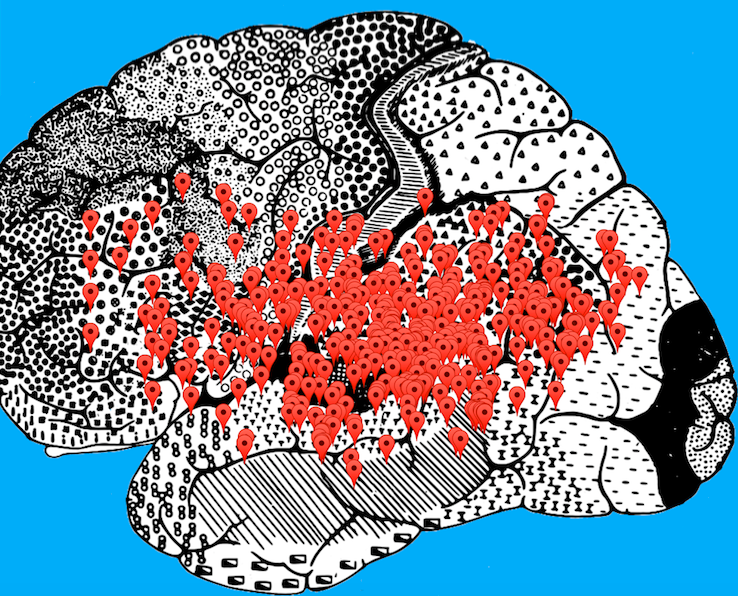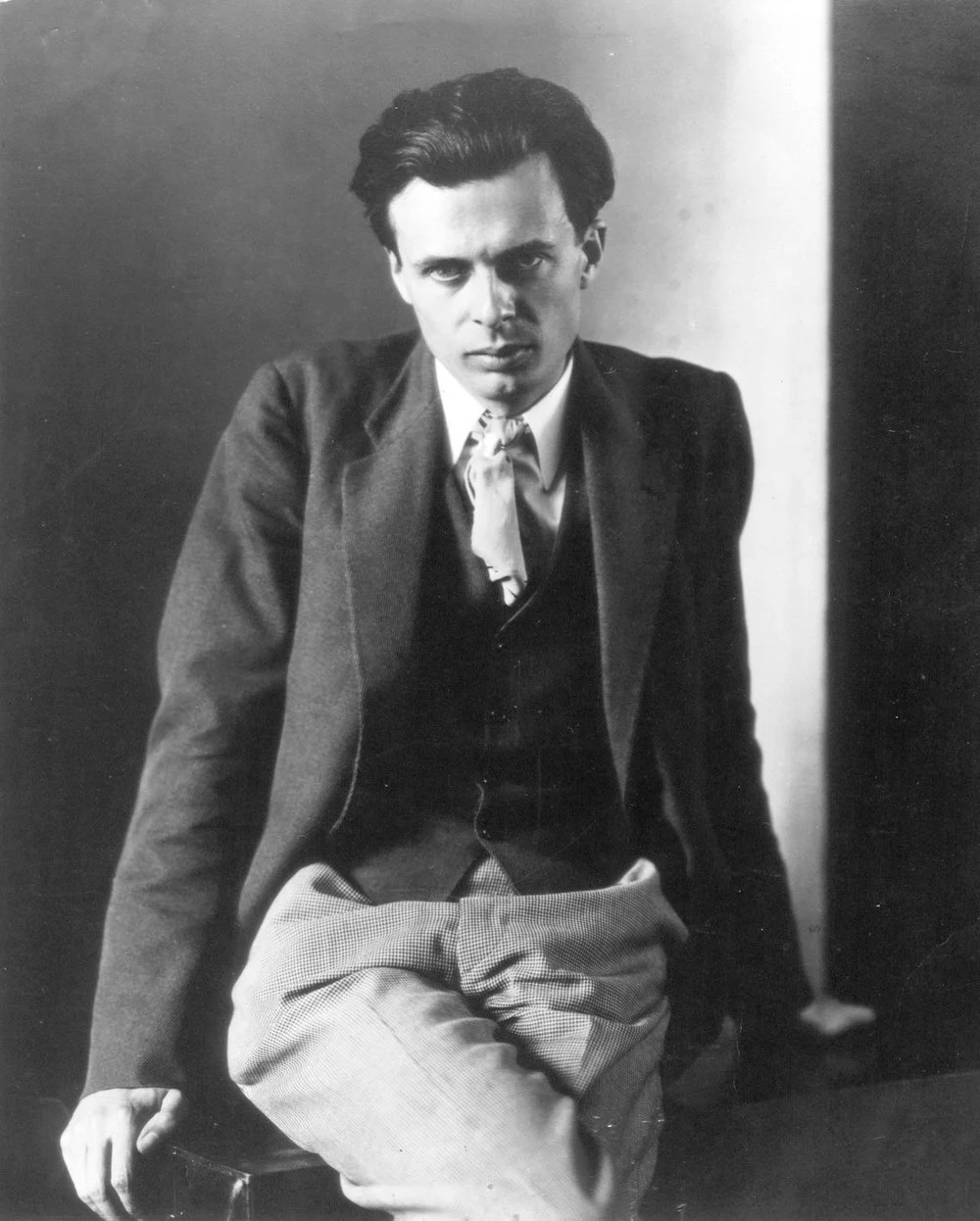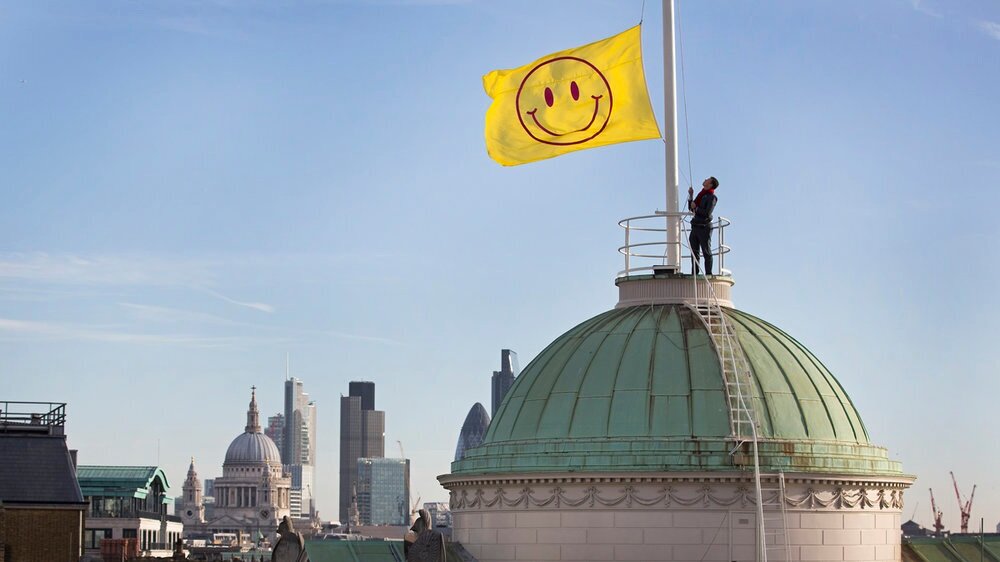
Paths to Utopia
Paths to Utopia was developed with Cultural Programming at King's College London, ran for 3 months, commissioned 25 new works and involved the participation of 500 artists, academics, students and members of the general public – a truly Utopian experience.
Across the exhibition, performances and talks programme 9500 people witnessed this 2016 attempt at examining Utopia – find out more about the archived programme here.
Watch the UTOPIA 2016 Launch event at Somerset House - - - >
The wide-ranging exhibition featured new works from Le Gun Collective, author Philip Hoare and artist Caitlin Shepherd amongst others, including films, immersive installations, durational performance, a national scratch choir, and talks and research that allow audiences to gather a figurative map of what Utopia means today.
Paths to Utopia was part of the Utopia 2016 season, which celebrated the 500th anniversary of the publication of Thomas More’s seminal text Utopia – the largest celebration of his work anywhere in the world. The season spanned the realms of art, academia, literature, fashion, design, architecture and beyond, featuring a varied and vibrant programme of special events, exhibitions, new commissions and activities across King’s College London, Somerset House and the Courtauld Institute and Gallery, as well as other partners across the UK.
My Utopia, Part of Utopia 2016
In collaboration with Dr. Rhys Williams and technologist Robert Prouse, Shrinking Space created an online create-your-own-Utopia artwork.
Through a carefully selected set of questions alluding to the depth of thought that is required to create a Utopia, audiences created a mapped location of their Utopia. Over 1000 maps were generated over the course of the projects season, and enabled audiences to see how their answers compared to others.
The artwork highlighted the near impossibility of finding a collective Utopia – nonetheless, wonderful debates were raised over the relative importance of everything from sexual habits, to money, housing and governance
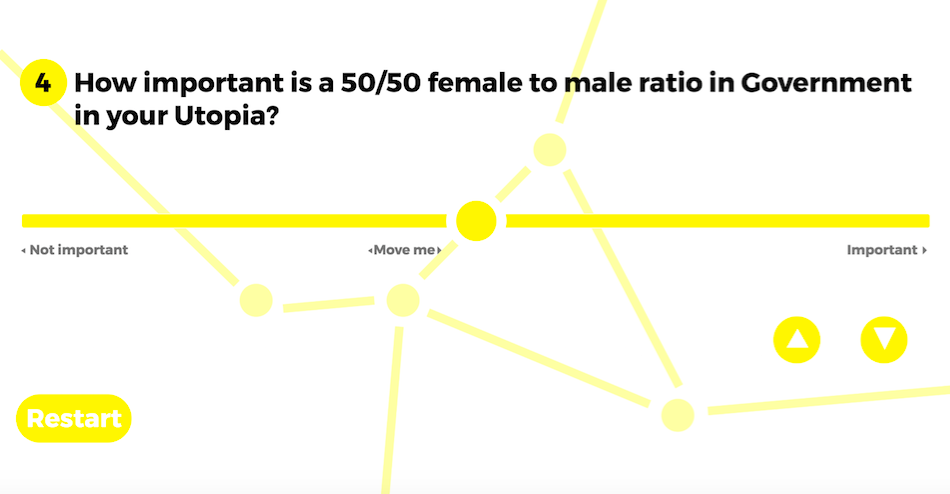
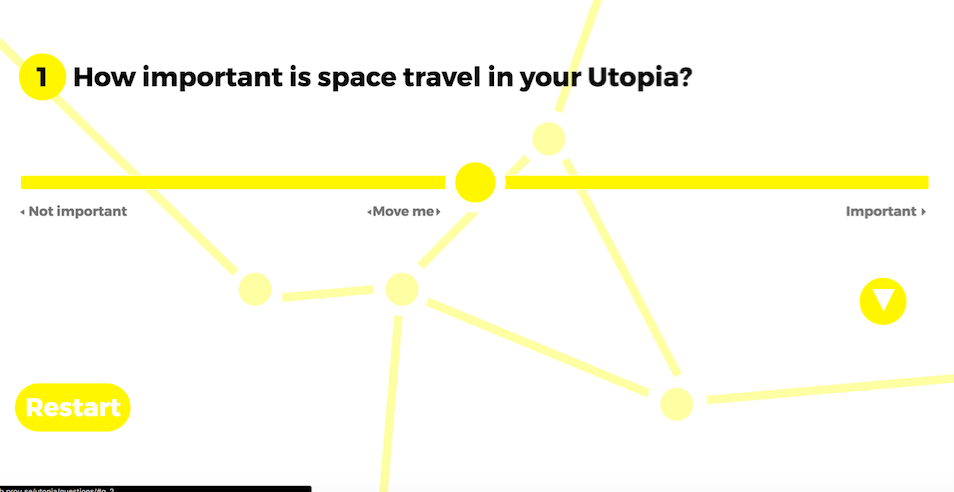
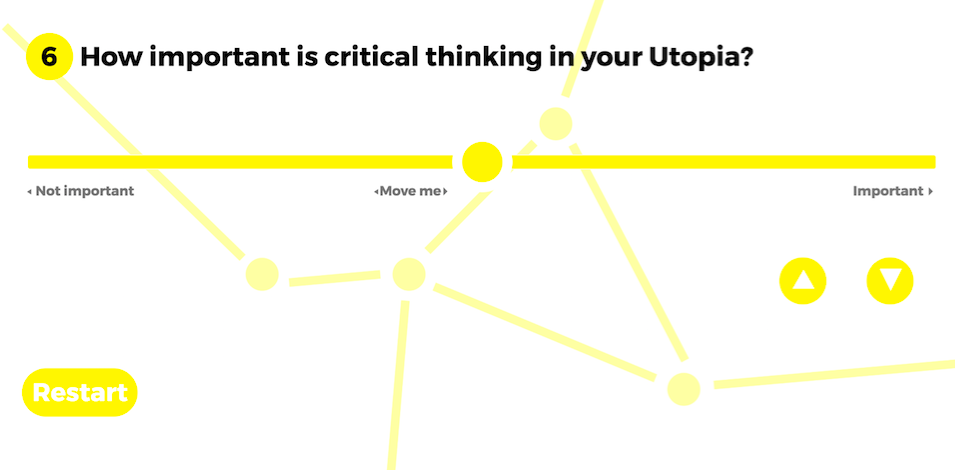
Utopian Lab: No Longer an Island
When good-health is compromised by illness, it becomes quickly apparent that ‘no man is an island’. The illusion of one’s independence and autonomy is shattered by the need to care or be cared for. Interdependence extends far beyond the reliance of a patient on his or her physician, into needs that might not have previously been noticed. Help is needed to get dressed, to buy and cook one’s food, to leave the house, to continue paying off a mortgage, and to weather new emotional experiences.
2.5 million people in the UK are living with cancer, and by 2030 this number will have risen to 4 million. No longer an island explores the ways in which the meaning of Utopia might be different for cancer survivors; people who have lived with and overcome one of the UK’s most significant diseases. Audio recordings of the thoughts of Guy’s Hospital cancer survivors are interspersed with readings from Aldous Huxley’s novel Island, a Utopia that re-imagines political priorities and social relationships as emanating from core values that centre around the human body (and mind), imagined by Huxley, who died of cancer.
An audio installation at Somerset House, London, 2016.
Artist, Andy Franzkowiak
Andy Franzkowiak curated and produced the collection, taking audiences on a journey to find their own Utopia.
UTOPIA 2016 was a collaboration between three neighbours: Somerset House, King’s College London and the Courtauld Institute, in partnership with the British Library, the AHRC, Guardian Live, London School of Economics and Political Science, Verso, the British Council and engaged many of the 300 plus creative organisations, artists and makers resident at Somerset House.

